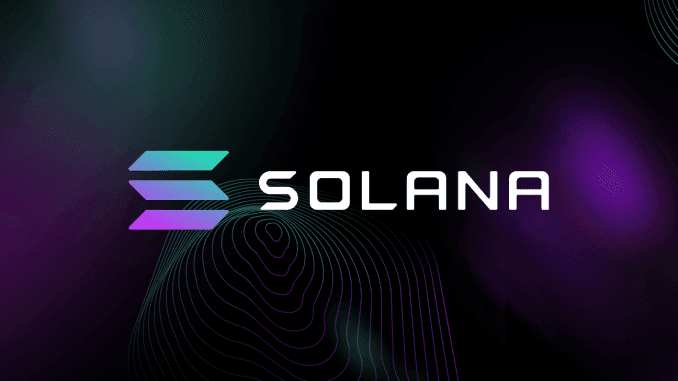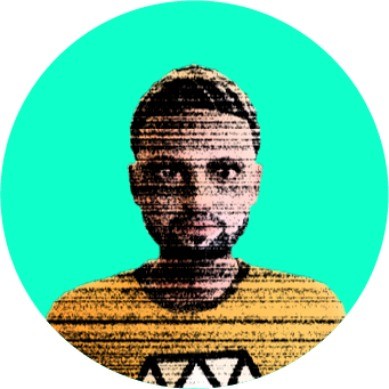Jan 6, 2022
What is Solana
Solana is a blockchain platform designed to host decentralized and scalable applications. Founded in 2017, Solana is an open-source project currently run by the Geneva-based Solana Foundation.
Solana is much faster in terms of the number of transactions it can process and has significantly lower transaction fees than rival blockchains like Ethereum.
The value of the cryptocurrency that runs on the Solana blockchain - SOL - increased by nearly 12,000% in 2021. With a market capitalization of more than $66 billion, it is the fifth largest cryptocurrency.
The applications hosted by Solana are many and varied, from DeFi applications, to marketplaces for NFT, Web3 applications, etc.
Solana's ecosystem is continually growing with numerous projects under development.
Why Solana
Solana's designers had the goal of demonstrating that there is a set of software algorithms that eliminate the performance bottleneck of a blockchain allowing transaction throughput to be proportional to the network bandwidth. The system architecture satisfies all three desirable attributes for a blockchain: scalability, security, and decentralization. Solana's architecture allows for a theoretical upper limit of 710,000 transactions per second on a Gigabit network and 28.4 million on a 40-Gigabit network.
Solana vs Ethereum
Solana's ecosystem is rapidly expanding and has demonstrated its great versatility. This has inevitably caused comparisons to Ethereum, the leading blockchain for decentralized applications (dApps).
Both Solana and Ethereum support smart contracts, which are crucial for running cutting-edge applications such as DeFi and NFTs.
At the moment, Solana enjoys an advantage due to the consensus algorithm used and its architecture, which enable higher performance and scalability at lower costs than Ethereum.
However, Ethereum has the first mover advantage, and with the large ecosystem, it is second only to Bitcoin in terms of market capitalization. Ethereum's Eth2 upgrade and its move to a Proof of Stake (PoS) model are both scheduled for 2022. This upgrade should make the blockchain more scalable, secure and sustainable, while dramatically increasing transaction processing speed.
Examples of applications on Solana
Serum
The Serum Project consists of a decentralized exchange (DEX) and an associated ecosystem that enables high processing speed and low costs. It is completely permissionless. Being based on Solana, Serum enables transactions that complete in less than a second, with an on-chain order book and extremely low fees.
The Solarians
Solarians are a collection of 10,000 fully randomized NFTs generative robots minted on the Solana blockchain. Each of the Solarians is an NFT, with its own entire history stored on the blockchain.
To ensure the uniqueness of each Solarian, an artist has designed 1800 unique body parts. Hence each Solarian is different from the others.
The NFT marketplace for Solarian is available on DigitalEyes, where you can check the rarity of each NFT Solarian. You can trade these NFTs for Solana's native token and prices range from 4 to 999999 SOL.
Mango markets
Mango Markets offers decentralised cross-margin trading with up to 5x leverage. The main features of the platform are margin trading on limit order books and perpetual futures which are the main revenue drivers of any centralised exchange.
Mango relies on Solana blockchain and uses Serum DEX for spot margin trading, while perpetual futures use Mango's order book.
MNGO holders govern Mango through the Mango DAO.
You can use Mango Markets to lend digital assets or act as a liquidator when positions do not meet collateral requirements.
Star Atlas
Star Atlas is a very innovative video game that combines the mechanics of blockchain with those of traditional gaming. When Solana launched the first blockchain web in 2019, it became the only blockchain solution capable of hosting applications with computational bandwidth similar to that of the Internet. Star Atlas leverages these features to make its metaverse usable. Moreover, it includes also NFTs that you can purchase and exchange through the platform.
Metaplex
The Metaplex platform allows artists and creators to launch self-managed NFT displays as easily as building a website. Metaplex enables the creation and issuance of non-fungible tokens, auctions, and display of NFTs in a standard way through wallets and applications. It consists of two basic components: an on-chain program and a web2 application that acts as a front-end.
Audius
Audius is one of the most popular apps in the crypto space. It provides a music streaming platform that puts the power back in the hands of content creators.
Audius moved to Solana and has grown rapidly, now having over 1 million monthly listeners. Audius is creating a fully decentralized community of artists, developers and listeners working together to share and champion the world's music.
Using Audius, creators can generate immutable, timed recordings and store them as assets in the Audius network, thanks to the network decentralization and blockchain protection.
The choice of Solana was inevitable, as it was the only system that could provide the speed and the low fees needed to grow Audius for a global audience.
Conclusions
Solana is a blockchain platform with more advanced features than its competitors. For this reason, many projects, among which several are still under development, have chosen it. The scope of the projects is very variable: DeFi applications, videogames, NFT, AMM, etc.
The future growth of the Solana ecosystem will depend a lot on the developments of Ethereum. Such development should solve the most important problems of the platform, potentially reducing the attractiveness of Solana.
Interested in using Solana for your project? Contact us
About the Author
Beatrice attended a Bachelor's degree in Italian Language, Literature and Civilization and got her Master's degree in 2020 at the Institute of Italian Studies of the University of Italian Switzerland (USI) in Lugano. Next to her humanistic education and passion for art history, she develops a personal interest in the field of communication and content creation, which she deepens in 2021 by attending a social media marketing training course. Since 2020 she has been part of the BrightNode team as a content writer.










